Sabbatical Journey
Our final stop in Portugal was on the southern coast, the region called the Algarve. This region is hot and dry -- a big change from Porto -- made up of smaller towns along the coast and a very popular European tourist destination. For better and for worse, I suppose, we have encountered very few Americans. Not that there is anything wrong with Americans as we love a whole lot of them, but it is nice to continue to be in places where we are the minority and experience life through the lens of those from other cultures. We've also adopted a much slower pace here enjoying days at the beach and the pool, slow dinners by the sea, and a little sightseeing on the side.
On our second day here we enjoyed a final encounter more oriented towards current and future church mission partnership at A Rocha - an initially Portuguese (now multi-national) organization dedicated to environmental preservation from a faith-based foundation. We first heard of A Rocha's work through connections at First Presbyterian and in relationship to our current partnership with Plant With Purpose - a similarly oriented non-profit. Ben Lowe, the Executive Director of A Rocha USA, visited First Presbyterian last August and shared highlights of their work and its impact around the world. We were thrilled to learn more about their mission, eager to explore a potential partnership and curious to find out if there would be an opportunity to connect with one of their sites during our sabbatical journey.
As it turns out, the best possibility was visiting the original campus in Portugal during our time here. On Thursdays, they host visitors for a variety of presentations about their current work. We arrived on a day that included two presentations: one on the study of moths and another on their extensive work of ringing birds captured on their property so that they can track long-term patterns of migration, health, and sustainability. While these topics were admittedly not ones that we would have chosen given our own interests, we left with a clear sense that environmentalism, or creation care as we often call it, necessarily includes a vast range of aspects, commitments and collaboration in order to more thoroughly and effectively engage with the spectacular diversity of the natural world itself. After the presentations, we were also invited to stay for lunch with a group of students who were on-site for two weeks from Cardiff University - a hopeful sign of the next generation energetically taking the baton from ours in order to tackle the challenges ahead.
A Rocha Visit and the Southern Coast of Portugal
The Algarve, Portugal
Our final stop in Portugal was on the southern coast, the region called the Algarve. This region is hot and dry -- a big change from Porto -- made up of smaller towns along the coast and a very popular European tourist destination. For better and for worse, I suppose, we have encountered very few Americans. Not that there is anything wrong with Americans as we love a whole lot of them, but it is nice to continue to be in places where we are the minority and experience life through the lens of those from other cultures. We've also adopted a much slower pace here enjoying days at the beach and the pool, slow dinners by the sea, and a little sightseeing on the side.
On our second day here we enjoyed a final encounter more oriented towards current and future church mission partnership at A Rocha - an initially Portuguese (now multi-national) organization dedicated to environmental preservation from a faith-based foundation. We first heard of A Rocha's work through connections at First Presbyterian and in relationship to our current partnership with Plant With Purpose - a similarly oriented non-profit. Ben Lowe, the Executive Director of A Rocha USA, visited First Presbyterian last August and shared highlights of their work and its impact around the world. We were thrilled to learn more about their mission, eager to explore a potential partnership and curious to find out if there would be an opportunity to connect with one of their sites during our sabbatical journey.
As it turns out, the best possibility was visiting the original campus in Portugal during our time here. On Thursdays, they host visitors for a variety of presentations about their current work. We arrived on a day that included two presentations: one on the study of moths and another on their extensive work of ringing birds captured on their property so that they can track long-term patterns of migration, health, and sustainability. While these topics were admittedly not ones that we would have chosen given our own interests, we left with a clear sense that environmentalism, or creation care as we often call it, necessarily includes a vast range of aspects, commitments and collaboration in order to more thoroughly and effectively engage with the spectacular diversity of the natural world itself. After the presentations, we were also invited to stay for lunch with a group of students who were on-site for two weeks from Cardiff University - a hopeful sign of the next generation energetically taking the baton from ours in order to tackle the challenges ahead.
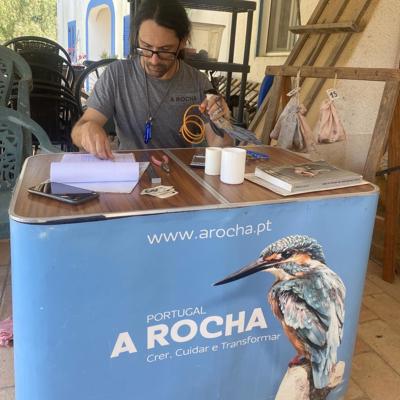
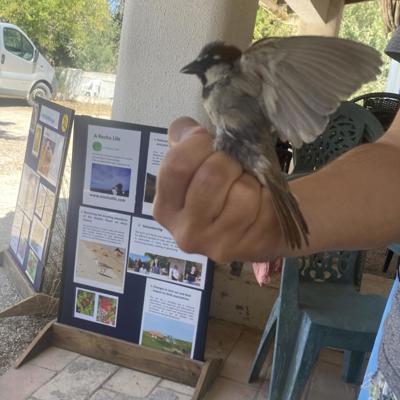
Since we began our European leg of the trip in the far east, it seemed only fitting to visit the western edge as well. We drove out to Sagres, the very tip of Portugal "on the edge of the world". There is an old fortress right on the far tip with defensive walls and a chapel -- the last place many generations of men went to pray before beginning their journey out to sea to explore or visit the country's colonies overseas. Sheer cliffs drop into the rough sea below while birds enjoy the strong winds for soaring.
The wind and sea batter the coastline here to carve caves and arches into the limestone. Some caves are tiny, just the perfect size for a bird's nest, and some a quite cavernous. We took a boat tour along a section of the coast to see the sea caves (and even enter some of them -- a test of our nerves!) and the arches, including the famous and picturesque "M".
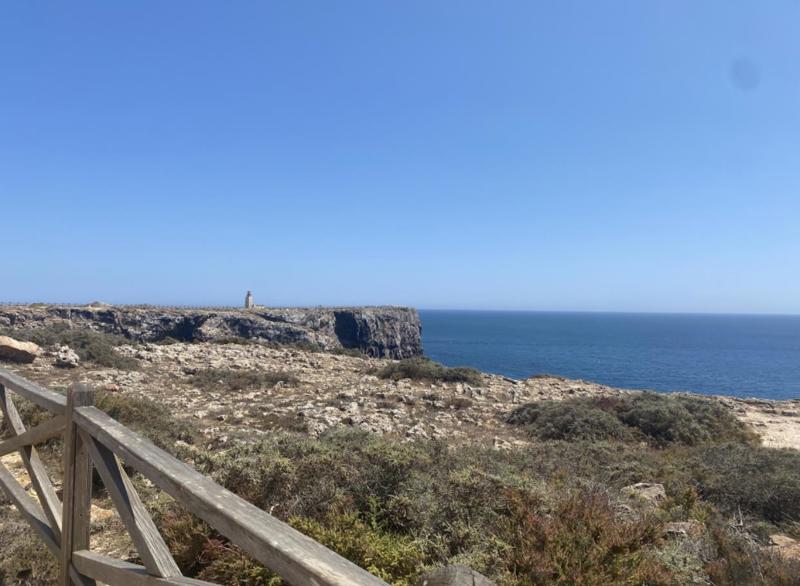
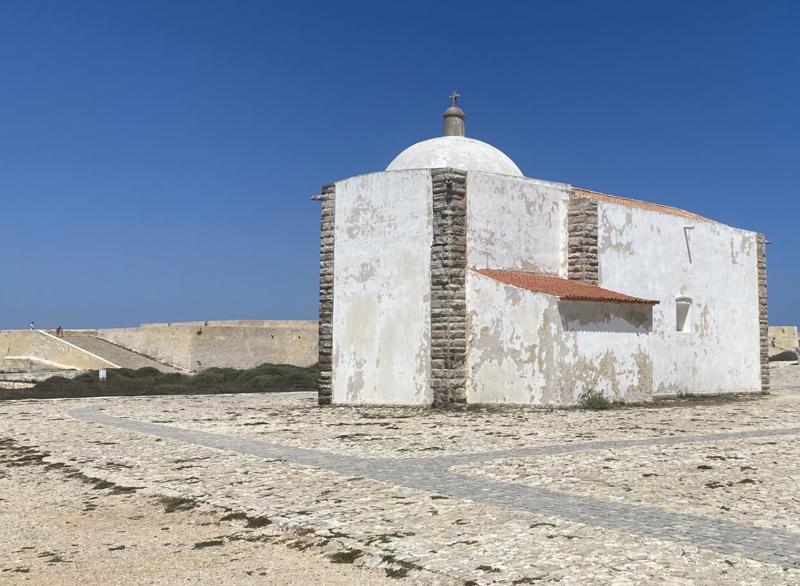
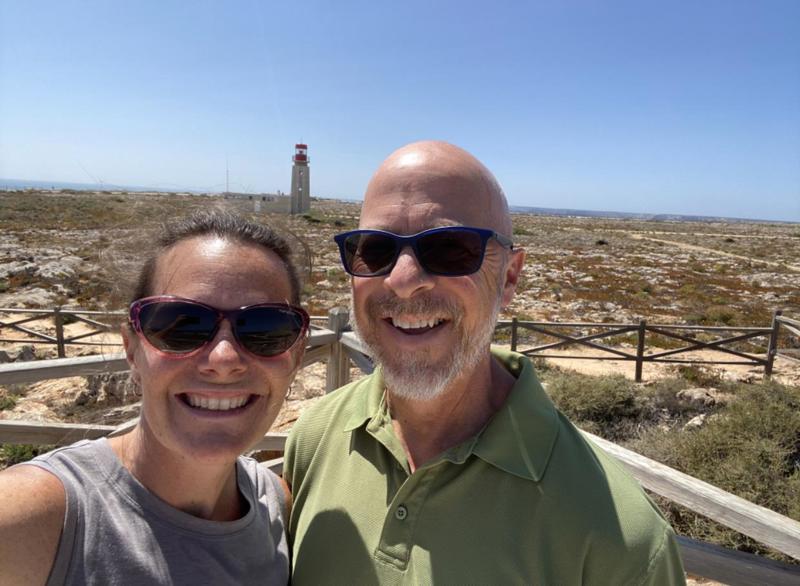
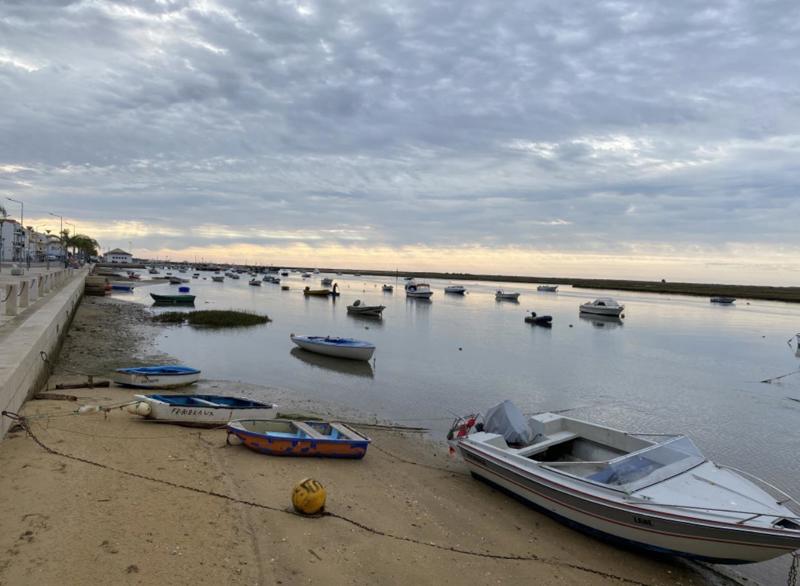
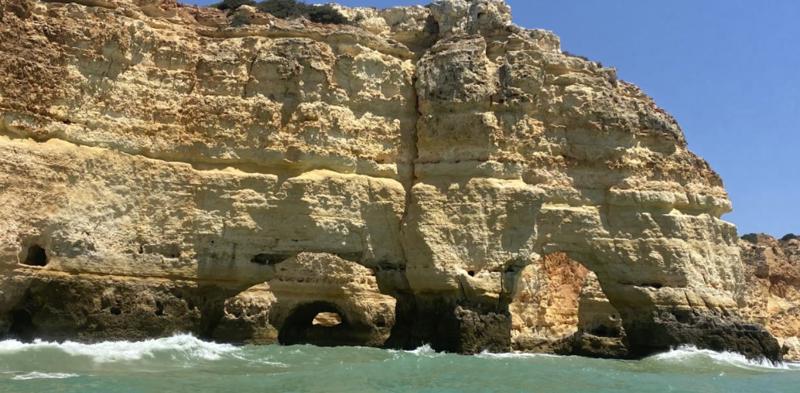
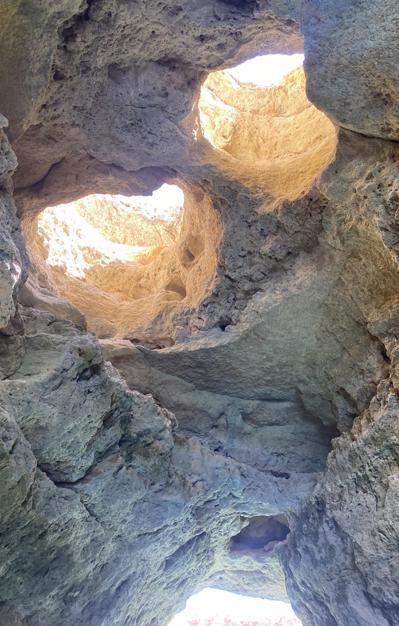
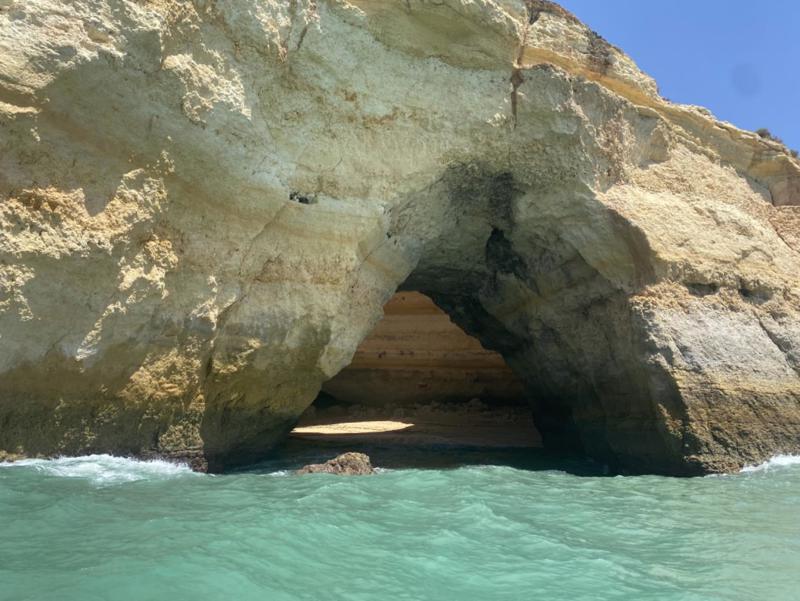
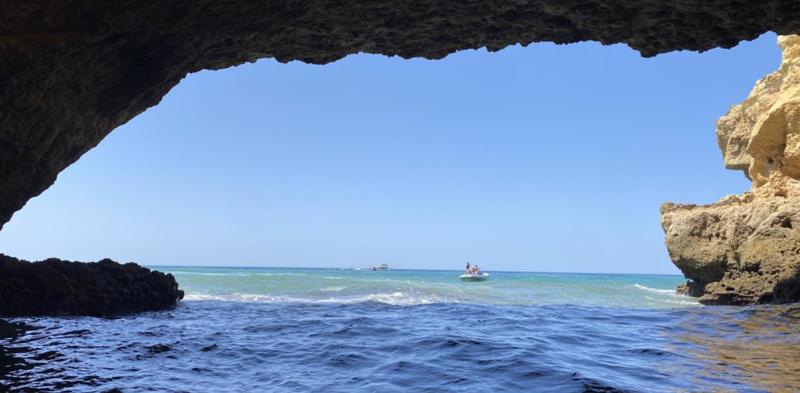
1.
Foreword
2.
The Itinerary
3.
Packing
4.
Cairo - Part 1
5.
Cairo - Part 2
6.
Sites of Ancient Egypt
7.
Egyptian Temples
8.
Valley of the Kings
9.
Egyptian Culture and Final Thoughts
10.
From Egypt to Morocco
11.
Northern Morocco
12.
Water and Climate Issues
13.
Cultural Capital of Morocco
14.
The Sahara Desert and Atlas Mountains
15.
The Road of 1000 Kasbahs and onto Marrakech
16.
A Wee Break in Londontown
17.
Malawi - First Impressions
18.
BEE World Pastor's Course
19.
Malawi’s National Parks
20.
Zomba Plateau
21.
Malawi, a Retrospective
22.
Plant with Purpose Tanzania
23.
Tanzania Safari
24.
Safari Animal Sighting List
25.
Enchanting Istanbul
26.
Classical Turkey & the Aegean Coast
27.
Cappadocia
28.
Lisbon
29.
Portugal's Heartland
30.
A Rocha Visit and the Southern Coast of Portugal
31.
Welcome
32.
Looking Back and Moving Forward
33.
...and home!
Share your travel adventures like this!
Create your own travel blog in one step
Share with friends and family to follow your journey
Easy set up, no technical knowledge needed and unlimited storage!
© 2025 Travel Diaries. All rights reserved.